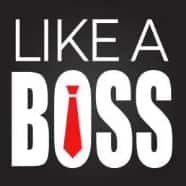SD Shibulal is the co-founder of Infosys, India’s second largest IT firm and has been the CEO of the company from 2011 to 2014. He currently oversees his family office, Innovations Investment Management and co-founder Axilor Ventures, a venture capital firm.
Being a part of Infosys since its inception in 1981, Shibulal has seen his share of crisis from the dotcom bubble in early 2000s to global financial crisis.
A Physics and Computer Science major, Shibulal applies the best of both when it comes to leadership and running an organisation. Learning the uncertainty principle does give him interesting perspectives, he quipped.
In an interaction with Moneycontrol, Shibulal talks about his leadership style, challenging the status quo, and tackling an unprecedented crisis like COVID-19 as a leader.
What time do you like to be at your desk?
I am an early riser. I usually get up by 5.30 am and I am at my desk at 9 am.
But, I wouldn’t say being an early rise is necessary for success. It works for me. I used to be a late riser years back. But once you start straddling multiple time zones, it becomes important to prepare for the day. Then early rising worked very well for me. I formed a habit.
Where is the best place to prepare for leadership: at business school or on the job?
I have masters in Physics and Computer Science and I have never been to business school. But I believe that both are important.
I think business schools add tremendous value. It gives you the fundamental principles, teaches you techniques and tools. You will learn from others' experiences, the good and bad, success and failures.
At the same time, there is no substitute for experience. Real world is very different from what you read in case studies, right? Future could be different. The example of this pandemic.
I am not sure if any of the business schools were discussing a pandemic in the last 10 years. So all these experiences you have learnt from others, is not relevant in the current situation. Then the most important thing is what I call learnability.
If you can learn from the past and apply to new instances and that is the most important capability.
Describe your management style.
I was with Infosys for most of my life. So my management style in many ways will reflect the traditional Infosys management style and Infosys always believed in the management style of leadership by example.
Leaders are the ones who set the tone at the top. So it is very important that they walk the talk and leaders should not ask things he/she is not willing to do.
For instance, you as a leader need to be seen as honest, transparent, and ethical, if you want others to be. If I expect my people to work hard, I should work hard. If I expect my people to be transparent, I need to be transparent. If I expect to build a company that is non-hierarchical, then the leader has to be non-hierarchical.
As a leader I should be the role model. I should be the one who sets a high level of standard, anything I want the organisation to achieve.
Are tough decisions best taken by one person or collectively?
I am a person who believes that decisions have been co-created, because it brings in a wider set of conversations, where all the views are heard. Of course, there are times that one cannot take decisions in a collaborative manner.
But I still believe in conversations and hearing the views. Because that way the chance of you getting it executed through the team is higher, because they have seen how the decision was made and why.
Once the decision is made, it is made. It has to be followed through. I am not a person who believes in running-debate society kind of environment.
At the end of the day, responsibility rests with the leader. It is not a dilution of responsibility. But credit always goes to the team.
What kind of leader do you want to be, liked, feared or respected?
I have read somewhere that fear is never a sustainable tool. I would like to be a leader who is respected. Then it is a two way path. Respect has to be earned, I cannot demand it.
Your performance is equally important. Because your performance combined with other points I made earlier, will create recognition and respect.
What does your support team look like?
Right now, my support team always has one or two people who manage my office. They manage all my appointments and calendars. All the material and backend prep for the meeting. They schedule and keep track of things. Some amount of email management.
Usually I have key people in support positions. I would have a head of finance who looks after finance from an overall perspective, head of compliance, things like that.
But I think as a leader of a large corporation, you need support teams more than a team especially when you are driving change. These teams have to be created that will drive that change across organisation working with their peers and wider management and subordinates.
So for example, if you are driving change in human resource management, then it has to be a combination of people from HR, and one of your business heads.












